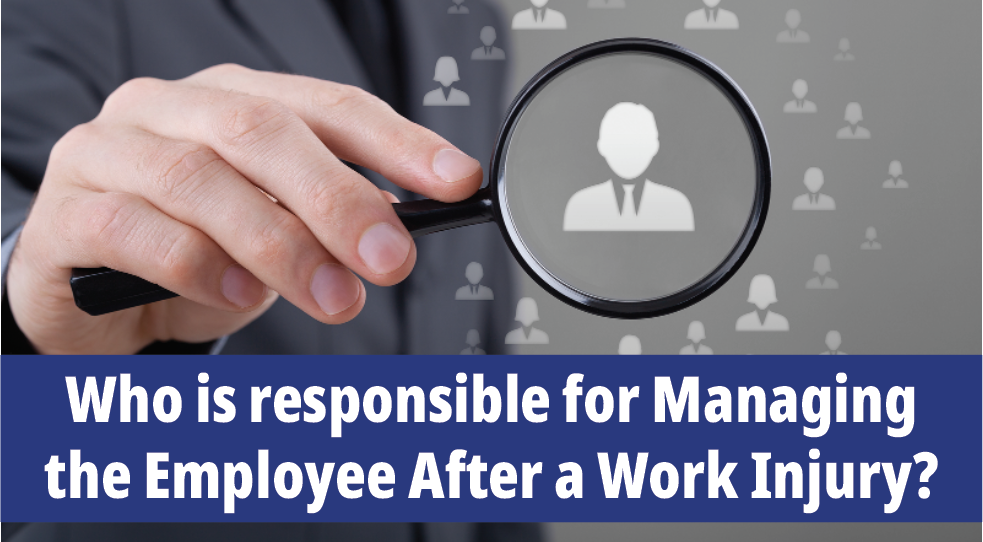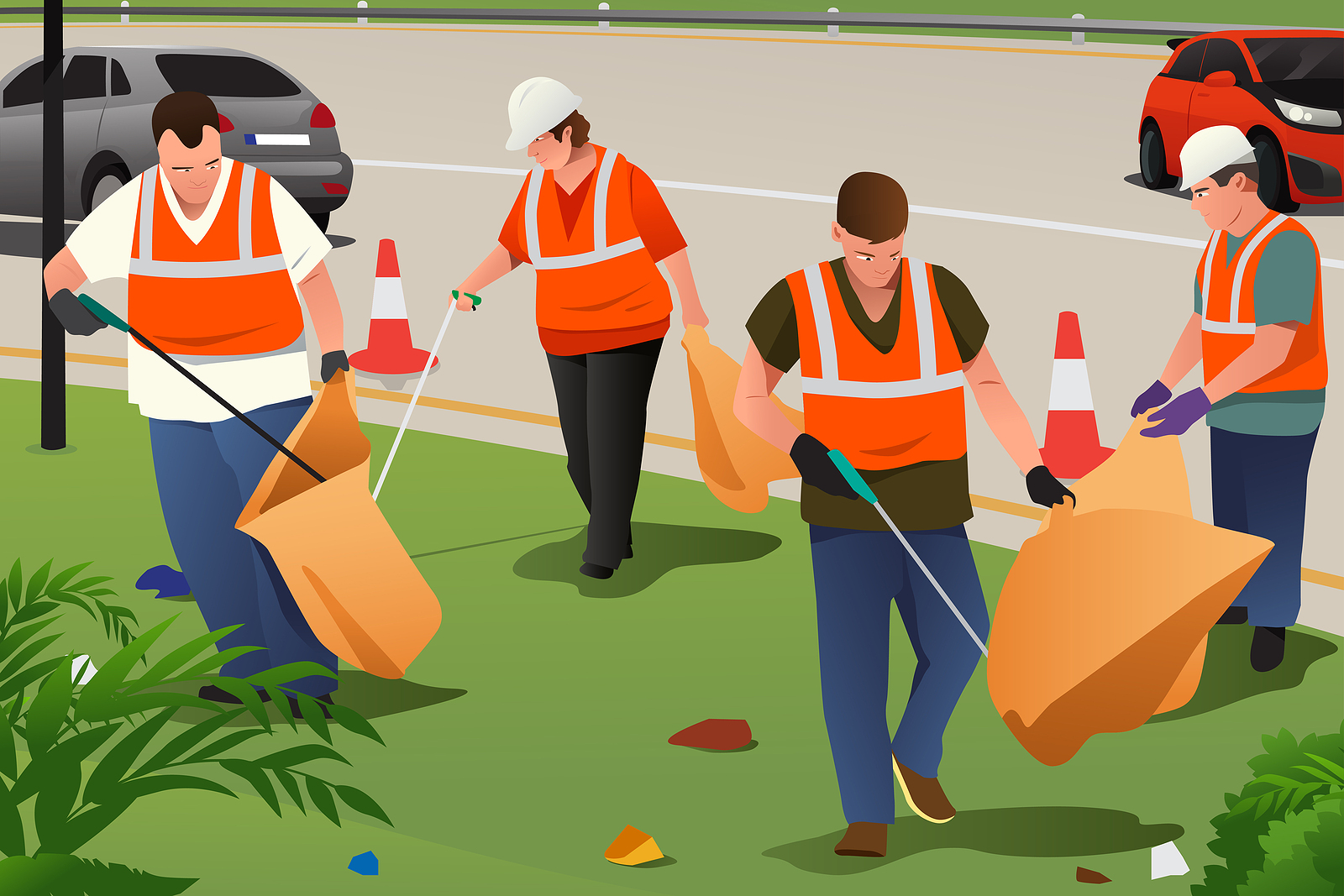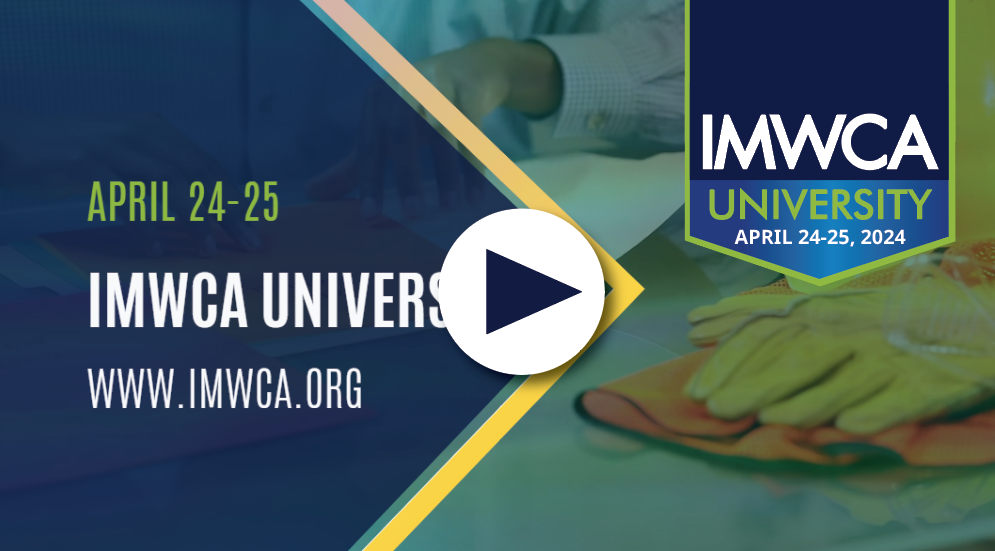
You may have heard your Safety and Risk Advisers or the Human Resources and Management Adviser say “we (IMWCA) manage the claim, you manage the employee. If you are new to IMWCA or managing workers’ compensation claims, you might wonder what exactly they mean.
When an employee becomes injured and files a workers’ compensation claim, their stress and anxiety levels often escalate. Many times, the process is new to them and they fear the unknown. After an employee has suffered a work-related injury, he or she will likely require more managerial oversight from their supervisor, even if they are not physically at work.
After an injury has occurred, it is a good idea to set up a meeting between the injured worker and their supervisor. At this meeting, you can go over the initial stages of the process and set expectations as far as light-duty work and medical treatment. Remember, the employer decides when, where, and how they are going to bring an injured worker back to work within the employee’s restrictions. Any offer of light duty must be put into writing by the employer and if the injured worker decides to decline the light duty, it needs to be in writing as well. This meeting will likely set the tone for the remainder of the recovery process. We have developed a sample return-to-work policy and agreement for you to use.
As the employer, you stay in contact with the injured employee. It is common practice to require injured employees to update their supervisor weekly and after every medical appointment. Remain positive with your interactions and communicate concern along with empathy. This type of culture needs to come from the top down. Employees who think management does not care about them will have more injuries and attempt to stay off work longer.
Management needs to support the injured worker. When an employee suffers an injury at home or has an illness, do you cut off communication? Why should a work injury be treated any differently? Avoid placing blame for the injury and remember also to manage co-workers’ expectations. Keeping co-workers informed (while maintaining confidentiality) helps keep everyone “on the same page.” Co-workers can have a negative impact on an injured employee’s return to work and recovery.
If the injured worker is going to be off work for an extended period it is important to keep them connected to the workplace. If light-duty work is not possible, some ideas for keeping them connected are:
- Weekly phone calls with job status updates or news from work
- Inviting them to staff meetings or functions
- Inviting them to training days or safety talks
Remember, these employees are an important part of your organization, and keeping them involved can positively impact the claims process.
Register Now for
IMWCA University
Check out this short video to learn more about what to expect.

Board Member Highlight: John Konior
Board Member: John Konior, Director of Risk Management/Support Services for the City of Urbandale since 2018. Before my current position, I was the Assistant to the City Manager at Urbandale since 2006. Before coming to Urbandale and Iowa, I was a research and budget analyst and business manager at the City of Germantown, TN. I have my Master’s in Public Administration (MPA) from Rockefeller College in New York and earned my Associate’s in Risk Management in 2022. I’m a former board member of a local credit union and actively volunteer at Living History Farms, the Greater Des Moines YMCA and Junior Achievement of Central Iowa.
How long have you been on the board?
February 2024
Why did you get involved with the IMWCA board of trustees?
I’ve had the pleasure of working with IMWCA since coming to Iowa and Urbandale in 2006. Over that time I’ve learned a lot about workers’ compensation, risk management and being a member of a risk pool. I have the highest regard for IMWCA and when the board of trustees position came open recently, it felt like the right time to give back to the pool.
What value do you think the pool has for its members?
IMWCA has provided its members stability and ownership in the workers’ compensation insurance market. IMWCA was formed in 1981 as a direct result of outside insurance companies applying pressure to local markets. As a member of IMWCA, each city, county and association has a vested interest in its claims and the viability of the pool. We hold the keys to success and the opportunities to learn from our challenges. That has allowed IMWCA members to learn from each other, advocate for safer work environments and build its safety and risk improvement team.
What are your goals for IMWCA for the future?
I’m new to the board of trustees and welcome learning from its tenured members. I’m eager to learn more about IMWCA’s strategic priorities and how outside insurance forces are shaping how the pool can conduct business. I’m looking forward to listening and asking questions. I believe that work injuries and risk management are evolving as the work environment has evolved since 2022. We need to understand those changes and be prepared at the front line level to address a shift in work culture, technology and climate resiliency.
What recommendations do you have for members to improve their safety and reduce their premiums?
Each IMWCA member has the ability to influence safety and improve their premiums. I’ve come to learn that any change takes understanding the situation, a willingness to try something new, and the commitment to continue forward and adjust. I’ve learned that no one person has all the answers and engaging employees at all levels is critical. That includes inviting and listening to those employees who believe the latest safety idea is just not going to work. I recommend taking small steps and keeping your determination and focus. Additionally, IMWCA offers a world of support. You can find model policies, tap into the online learning system (Learn), and always reach out to the safety and risk team with a question. Lastly, I would recommend you connect with your peers and join the IMWCA Safety Professionals group.
Guidelines for Illegal Dumping Sites, Roadside Litter Cleanup, and Drop-Off Recycling Locations Now Available

The IMWCA has developed guidelines to assist those involved with cleaning up Illegal dump sites, operating adopt-a-road programs, and managing wastes left at recycling drop-off locations. These types of programs often pose a variety of dangers to employees and volunteers. The guidelines provide model site/risk assessment and operations procedures.
The guidelines detail the many types of associated hazards and strategies and how to reduce potential injuries. These include site review and assessment, operational issues, and use of appropriate personal protective equipment.
Also discussed in the document are the risks associated with lithium-ion batteries and waste materials associated with methamphetamine labs. These materials often require the expertise of either firefighters or law enforcement. Being able to identify these hazards quickly is critical to ensure the materials are dealt with appropriately.
The use of lithium-ion batteries in electronics, toys, and other products is growing exponentially. Unfortunately, when not properly stored, handled or recycled, these batteries pose risks of fire and explosion which can cause serious injuries.





